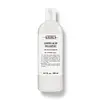What's inside
What's inside
 Key Ingredients
Key Ingredients

 Benefits
Benefits

 Concerns
Concerns

 Ingredients Side-by-side
Ingredients Side-by-side

Water
Skin ConditioningSodium Laureth Sulfate
CleansingCocamidopropyl Hydroxysultaine
CleansingSodium Cocoamphoacetate
CleansingOlive Oil PEG-7 Esters
EmollientSodium Chloride
MaskingPEG-40 Hydrogenated Castor Oil
EmulsifyingPhenoxyethanol
PreservativePropylene Glycol
HumectantCitric Acid
BufferingSalvia Officinalis Oil
MaskingSodium Dehydroacetate
PreservativeAlcohol Denat.
AntimicrobialEucalyptus Globulus Leaf Oil
PerfumingCedrus Atlantica Bark Oil
MaskingMentha Citrata Leaf Extract
AstringentMentha Piperita Oil
MaskingRosmarinus Officinalis Leaf Oil
MaskingJuniperus Communis Fruit Oil
MaskingMelaleuca Alternifolia Leaf Oil
AntioxidantAchillea Millefolium Extract
CleansingChamomilla Recutita Flower Extract
MaskingFoeniculum Vulgare Fruit Extract
EmollientHumulus Lupulus Extract
AntimicrobialMelissa Officinalis Flower/Leaf/Stem Extract
SoothingViscum Album Leaf Extract
SoothingPotassium Sorbate
PreservativeLinalool
PerfumingLimonene
PerfumingWater, Sodium Laureth Sulfate, Cocamidopropyl Hydroxysultaine, Sodium Cocoamphoacetate, Olive Oil PEG-7 Esters, Sodium Chloride, PEG-40 Hydrogenated Castor Oil, Phenoxyethanol, Propylene Glycol, Citric Acid, Salvia Officinalis Oil, Sodium Dehydroacetate, Alcohol Denat., Eucalyptus Globulus Leaf Oil, Cedrus Atlantica Bark Oil, Mentha Citrata Leaf Extract, Mentha Piperita Oil, Rosmarinus Officinalis Leaf Oil, Juniperus Communis Fruit Oil, Melaleuca Alternifolia Leaf Oil, Achillea Millefolium Extract, Chamomilla Recutita Flower Extract, Foeniculum Vulgare Fruit Extract, Humulus Lupulus Extract, Melissa Officinalis Flower/Leaf/Stem Extract, Viscum Album Leaf Extract, Potassium Sorbate, Linalool, Limonene
Water
Skin ConditioningSodium Methyl Cocoyl Taurate
CleansingSodium Coco-Sulfate
CleansingSodium Chloride
MaskingCoco-Betaine
CleansingLactic Acid
BufferingParfum
MaskingPPG-5-Ceteth-20
EmulsifyingSodium Lauroyl Glutamate
Propylene Glycol
HumectantPEG-55 Propylene Glycol Oleate
Salicylic Acid
MaskingBenzoic Acid
MaskingGuar Hydroxypropyltrimonium Chloride
Skin ConditioningCoconut Alcohol
EmollientSodium Sulfate
Cocos Nucifera Oil
MaskingCoumarin
PerfumingWheat Amino Acids
Skin ConditioningFumaric Acid
BufferingHydroxypropyltrimonium Hydrolyzed Wheat Protein
Skin ConditioningPhenoxyethanol
PreservativeDisodium EDTA
Potassium Sorbate
PreservativeWater, Sodium Methyl Cocoyl Taurate, Sodium Coco-Sulfate, Sodium Chloride, Coco-Betaine, Lactic Acid, Parfum, PPG-5-Ceteth-20, Sodium Lauroyl Glutamate, Propylene Glycol, PEG-55 Propylene Glycol Oleate, Salicylic Acid, Benzoic Acid, Guar Hydroxypropyltrimonium Chloride, Coconut Alcohol, Sodium Sulfate, Cocos Nucifera Oil, Coumarin, Wheat Amino Acids, Fumaric Acid, Hydroxypropyltrimonium Hydrolyzed Wheat Protein, Phenoxyethanol, Disodium EDTA, Potassium Sorbate
Ingredients Explained
These ingredients are found in both products.
Ingredients higher up in an ingredient list are typically present in a larger amount.
Phenoxyethanol is a preservative that has germicide, antimicrobial, and aromatic properties. Studies show that phenoxyethanol can prevent microbial growth. By itself, it has a scent that is similar to that of a rose.
It's often used in formulations along with Caprylyl Glycol to preserve the shelf life of products.
Potassium Sorbate is a preservative used to prevent yeast and mold in products. It is commonly found in both cosmetic and food products.
This ingredient comes from potassium salt derived from sorbic acid. Sorbic acid is a natural antibiotic and effective against fungus.
Both potassium sorbate and sorbic acid can be found in baked goods, cheeses, dried meats, dried fruit, ice cream, pickles, wine, yogurt, and more.
You'll often find this ingredient used with other preservatives.
Learn more about Potassium SorbatePropylene Glycol is an odorless, colorless liquid. As a humectant, it helps skin retain moisture. It also aids in delivering active ingredients.
Another role of this ingredient is preventing a product from melting or freezing. Propylene glycol also adds antimicrobrial properties to a product, elongating product lifespan.
This ingredient is considered an organic alcohol and commonly added into both cosmetics and foods.
Those with sensitive skin or conditions may develop a rash when using this ingredient.
Learn more about Propylene GlycolChances are, you eat sodium chloride every day. Sodium Chloride is also known as table salt.
This ingredient has many purposes in skincare: thickener, emulsifier, and exfoliator.
You'll most likely find this ingredient in cleansers where it is used to create a gel-like texture. As an emulsifier, it also prevents ingredients from separating.
There is much debate on whether this ingredient is comedogenic. The short answer - comedogenic ratings don't tell the whole story. Learn more about comegodenic ratings here.
The concensus about this ingredient causing acne seems to be divided. Research is needed to understand if this ingredient does cause acne.
Scrubs may use salt as the primary exfoliating ingredient.
Learn more about Sodium ChlorideWater. It's the most common cosmetic ingredient of all. You'll usually see it at the top of ingredient lists, meaning that it makes up the largest part of the product.
So why is it so popular? Water most often acts as a solvent - this means that it helps dissolve other ingredients into the formulation.
You'll also recognize water as that liquid we all need to stay alive. If you see this, drink a glass of water. Stay hydrated!
Learn more about Water